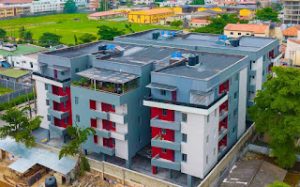FG to Commence Construction of 34,500 Housing Units Nationwide Before December

The Federal Government has revealed that it is set to commence the construction of 34,500 housing units in thirty states of the Federation including Kano, Lagos, Rivers, Borno, Enugu, Nasarawa, and the Federal Capital Territory (FCT).
This disclosure was made by the Federal Minister of Housing and Urban Development, Arc. Musa Dangiwa on Thursday while delivering his keynote speech at the ongoing 12th Meeting of the National Council of Lands, Housing and Urban Development held in Kaduna.
According to the Minister, the construction of the 34,500 housing units which is slated to commence before December is the Phase 1 of the Renewed Hope Cities and Estates and Slum Upgrading Programme.
Dangiwa further explained that the 34,500 housing units would consist of 1, 2 and 3-bedroom affordable multi-level flats and bungalows for low-income earners, as well as high-end detached bungalows, terraces and duplexes for high income earners in thirty states and the FCT.
The Housing Minister also stated that the Federal Government have already mapped out several options to ensure to make the housing units are easily affordable by Nigerians upon completion.
He listed the options to include Rent-to-Own, Public Rental, Mortgage Loans, and where applicable, outright sale.
Nationwide Slum Upgrading Programme
Arc. Musa Dangiwa also revealed that the Federal Government intends to upgrade a total of 26 slums in the Six (6) regions of the country, including the Federal Capital Territory.
The Minister stated that the project would ensure the provision of access roads, water supply, solar street lights, drainages, and several other ancillary services that would improve the living standards of the slum dwellers.
In his words, “This project would ensure the provision of key infrastructure and ancillary services including access roads, water supply, solar streetlight, drainages, sanitation and waste management services etc., that would improve the living standards of the slum residents in the project sites and the urban poor in general.”









